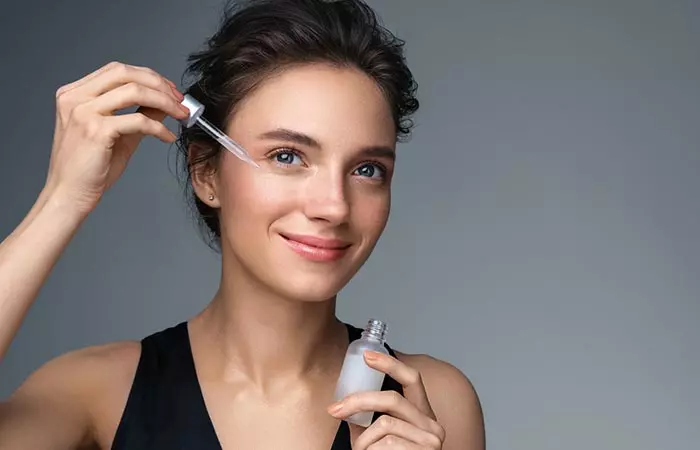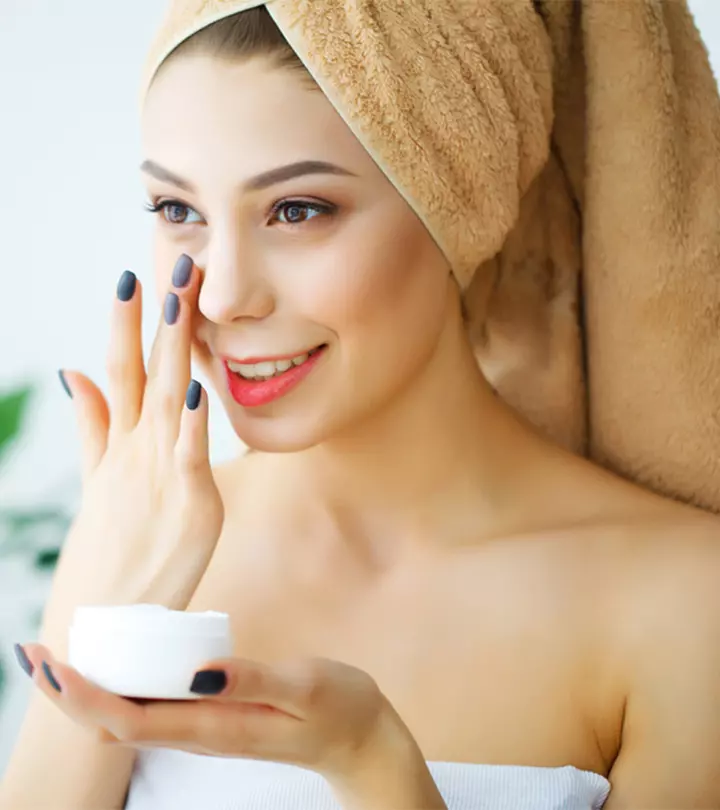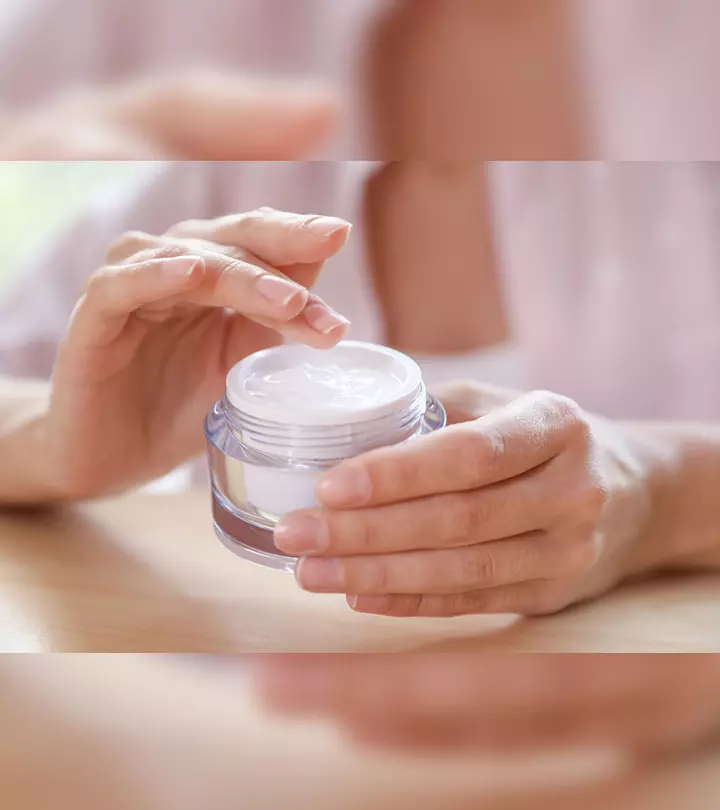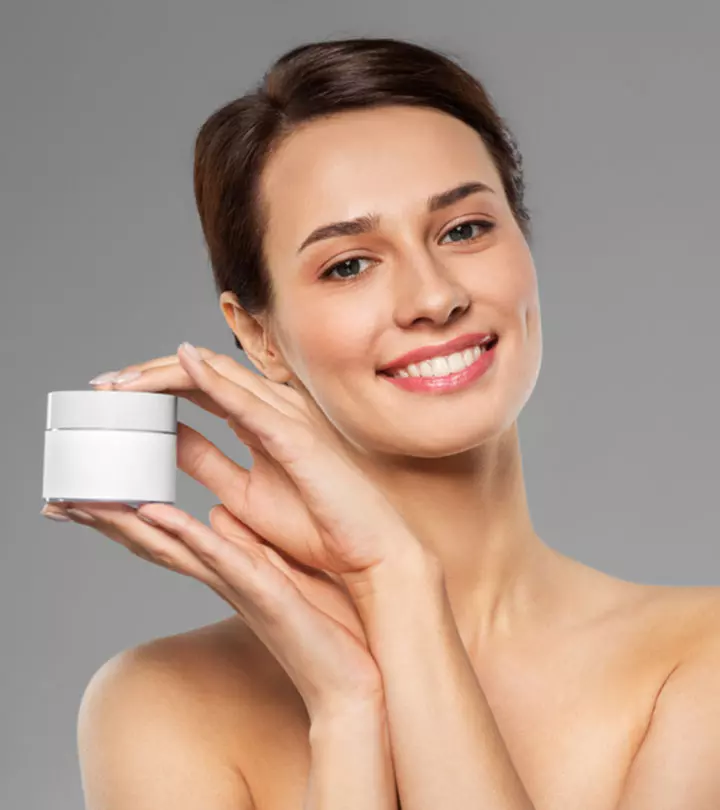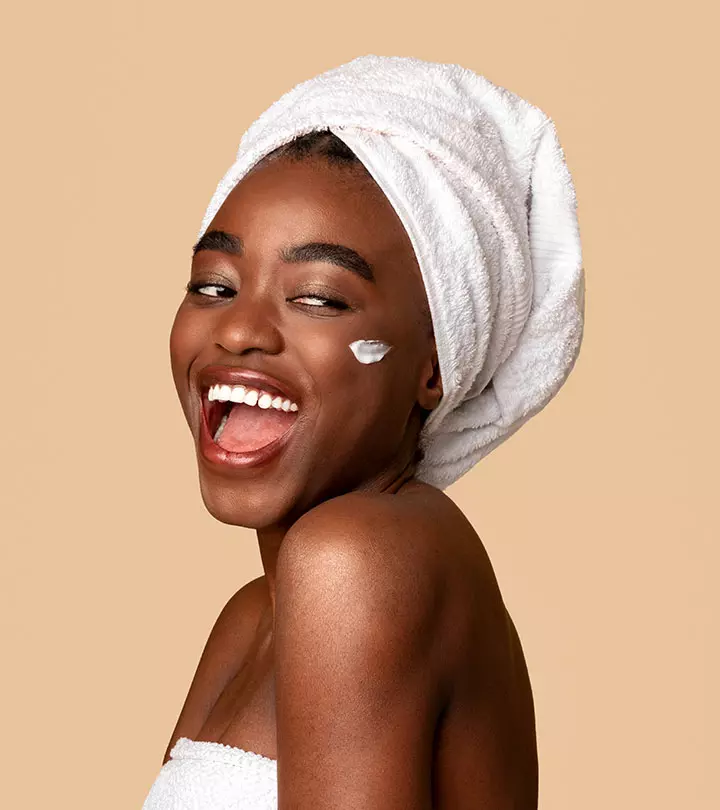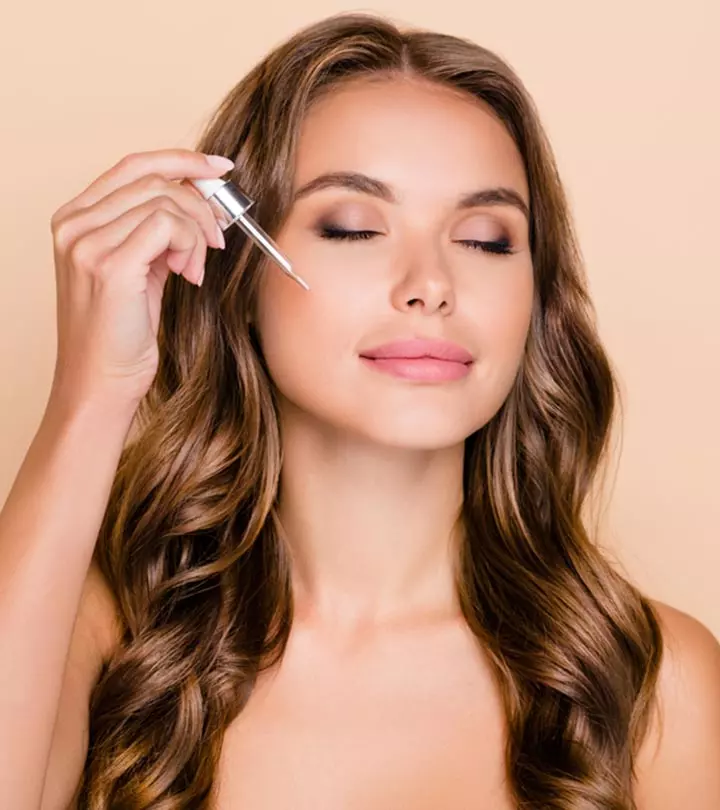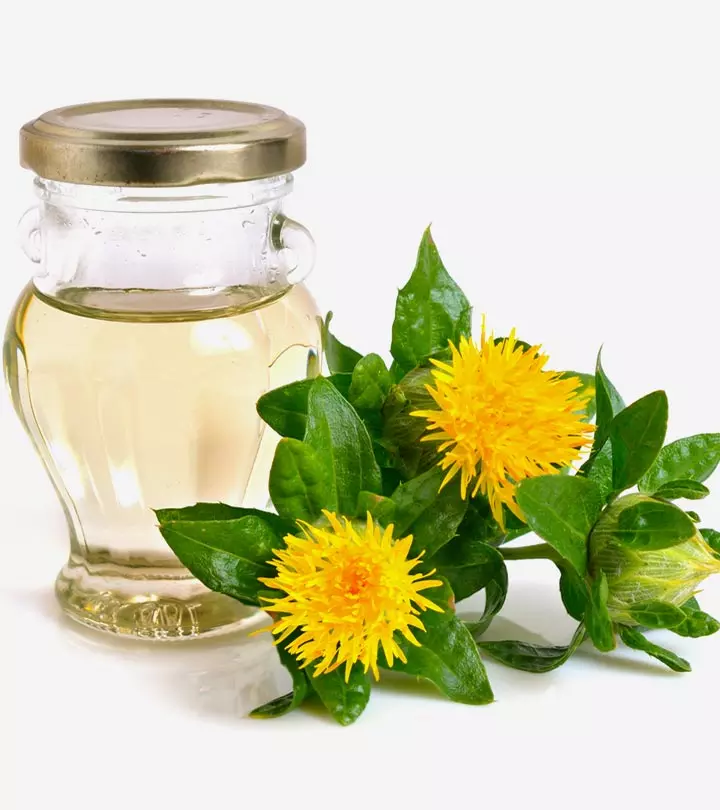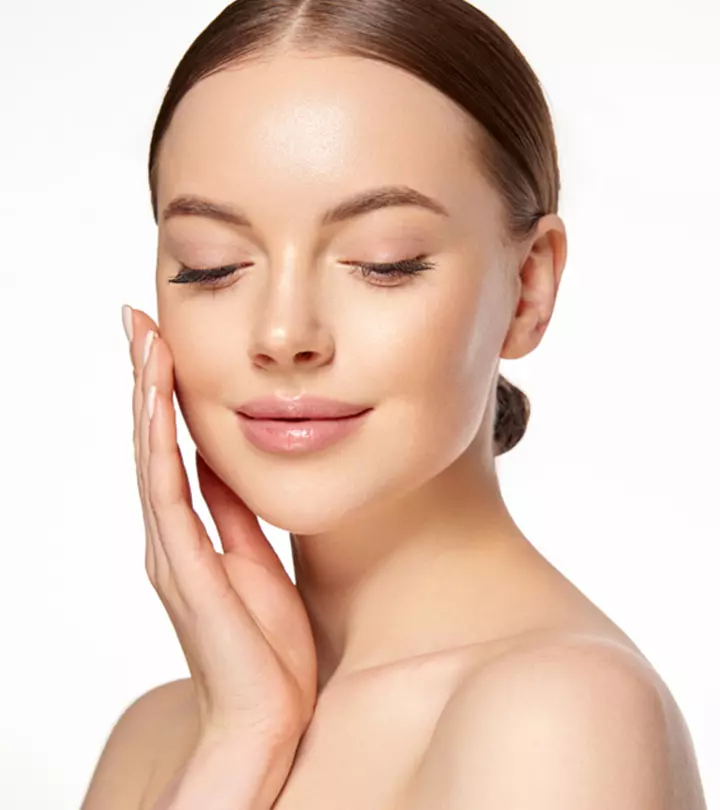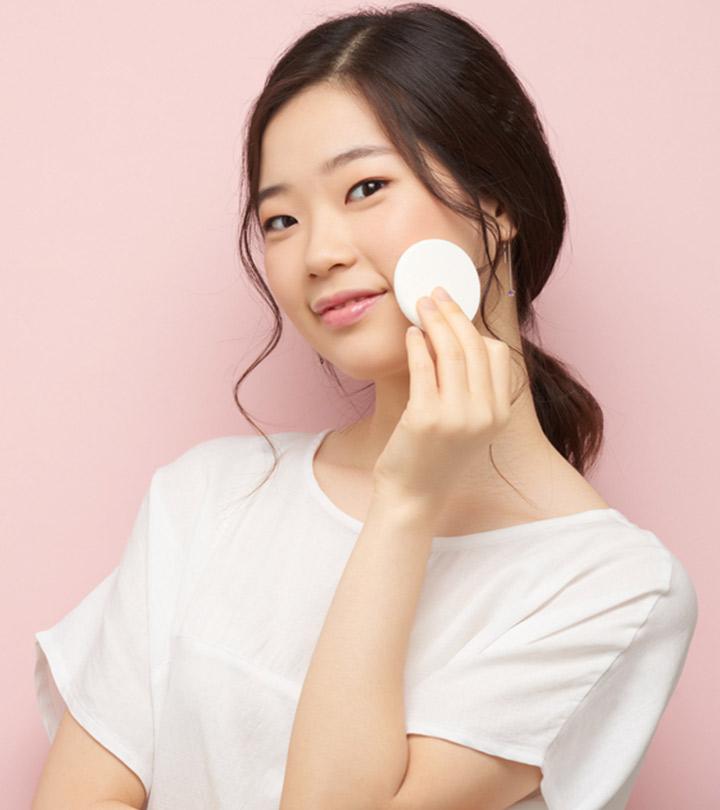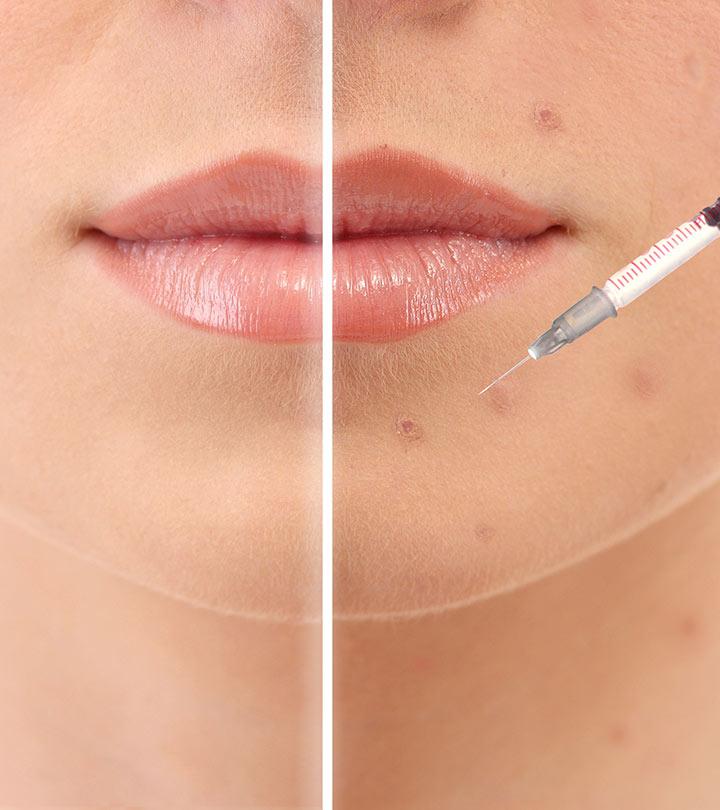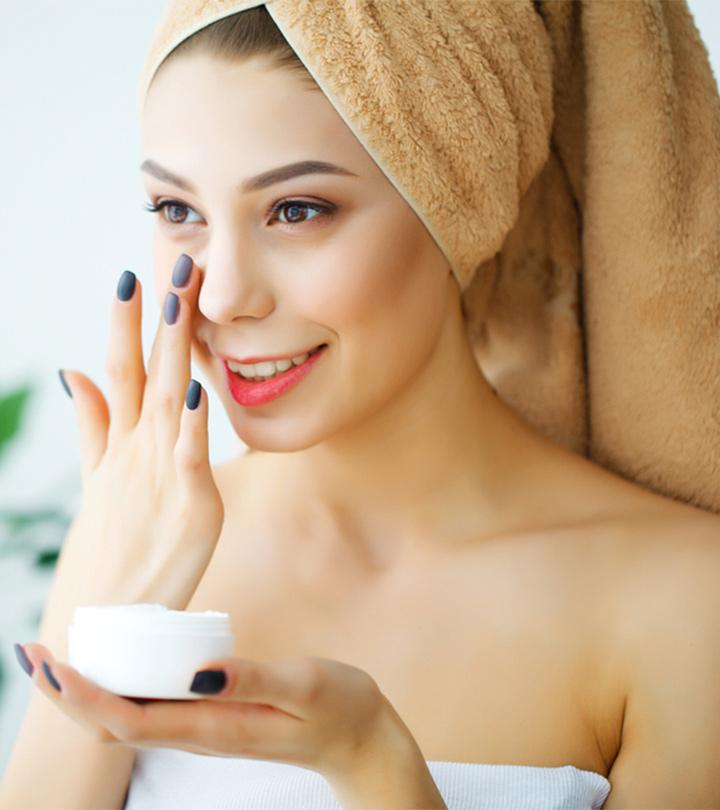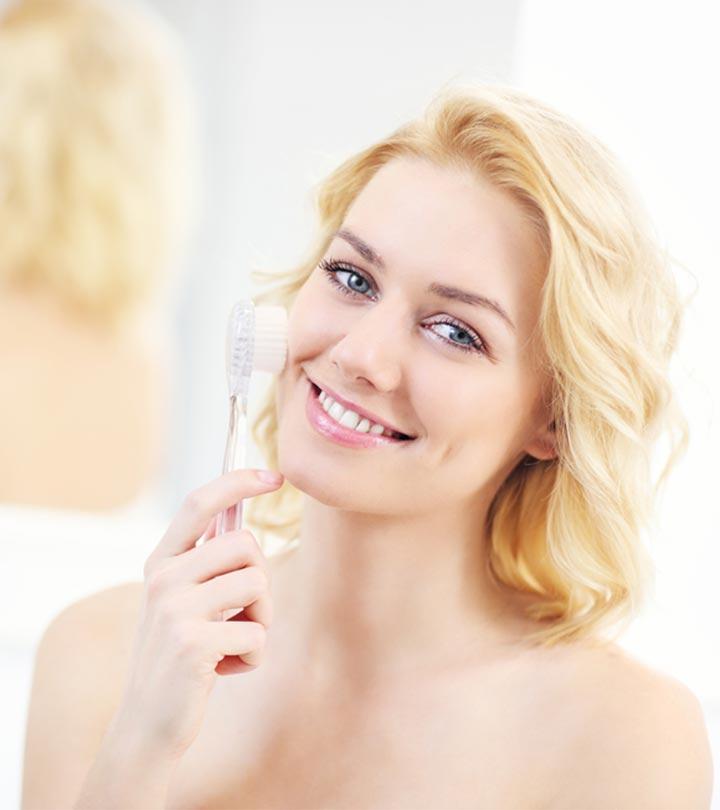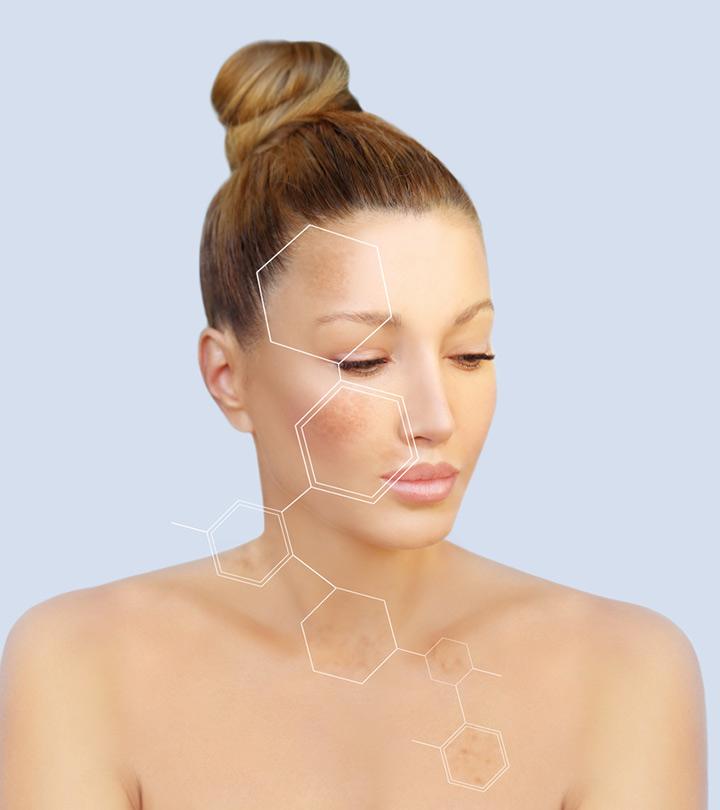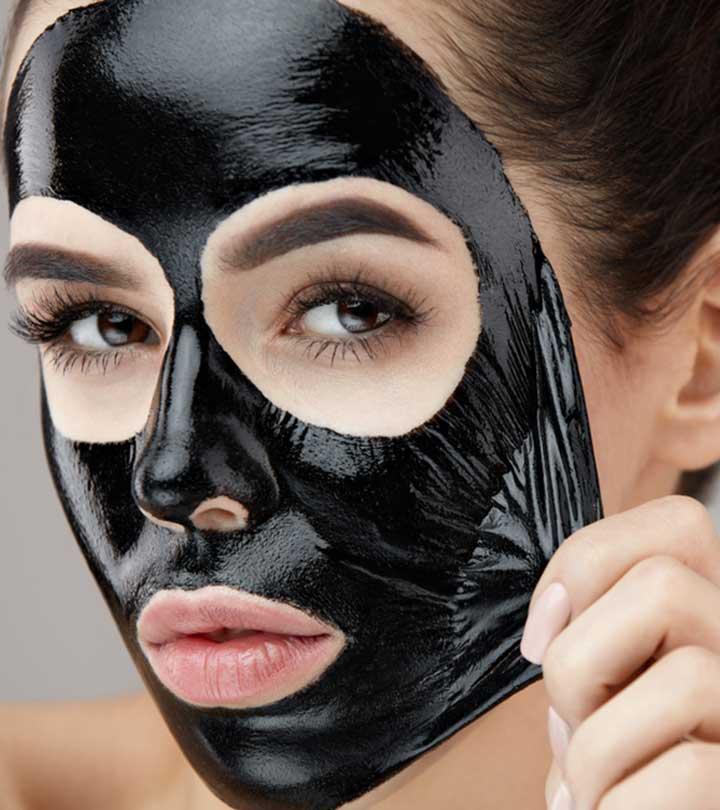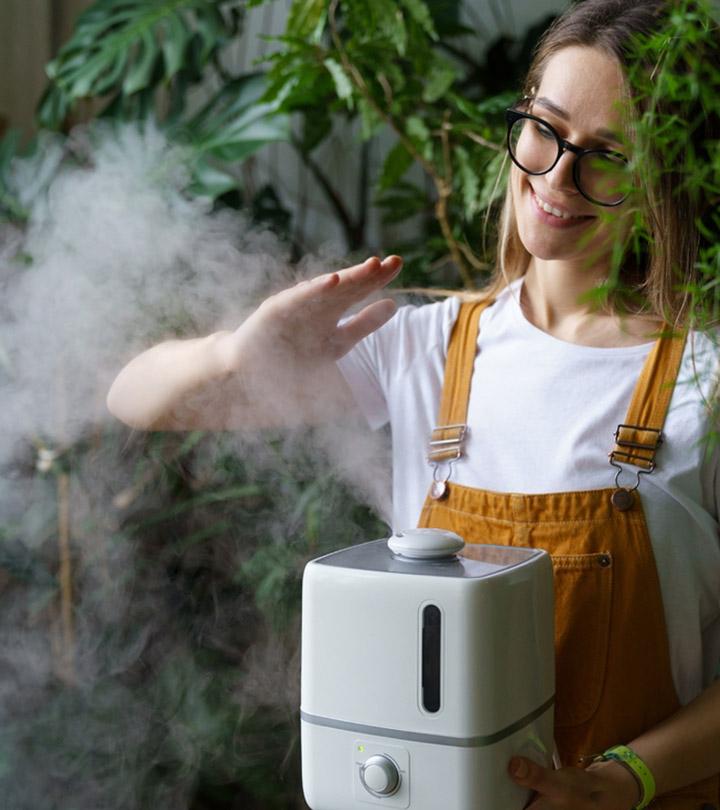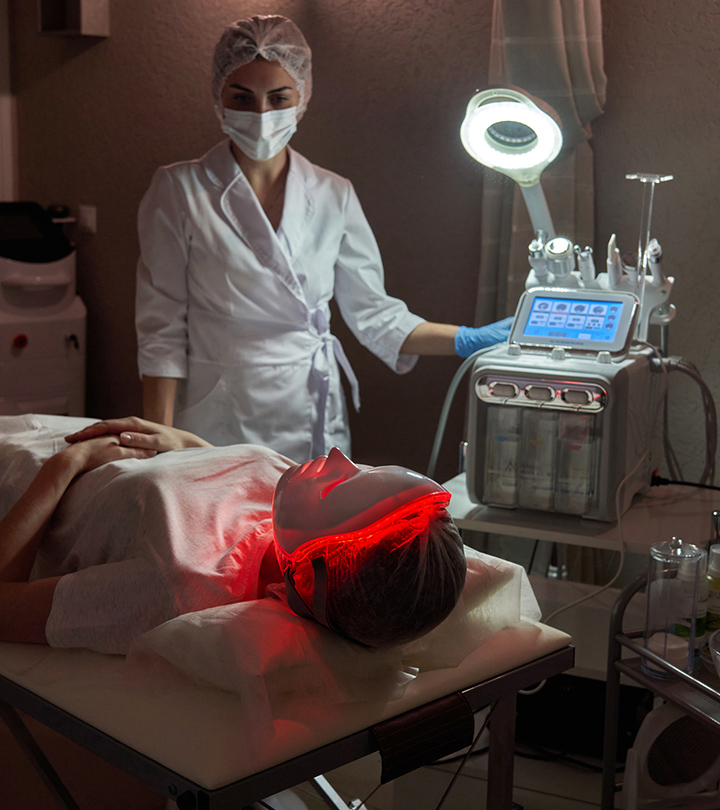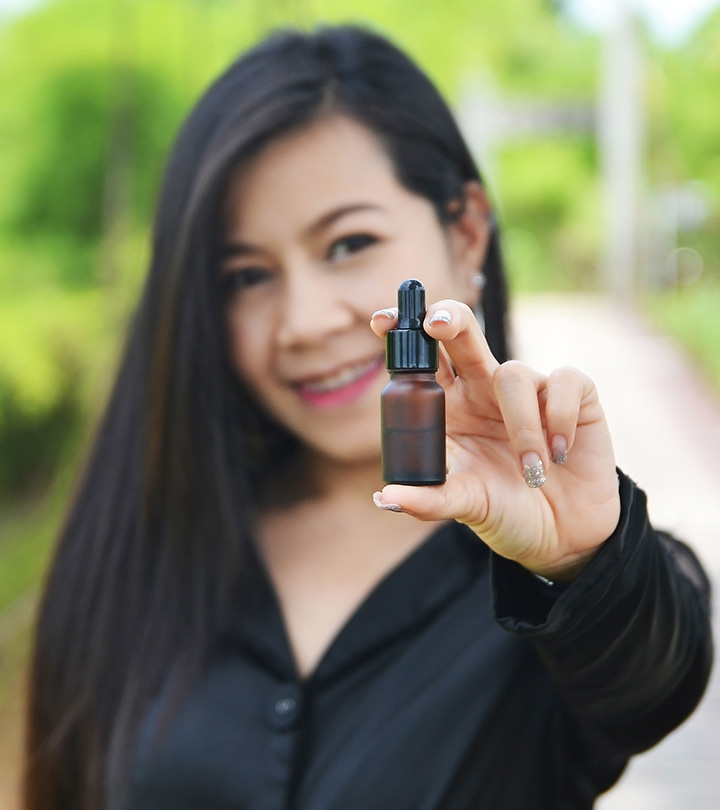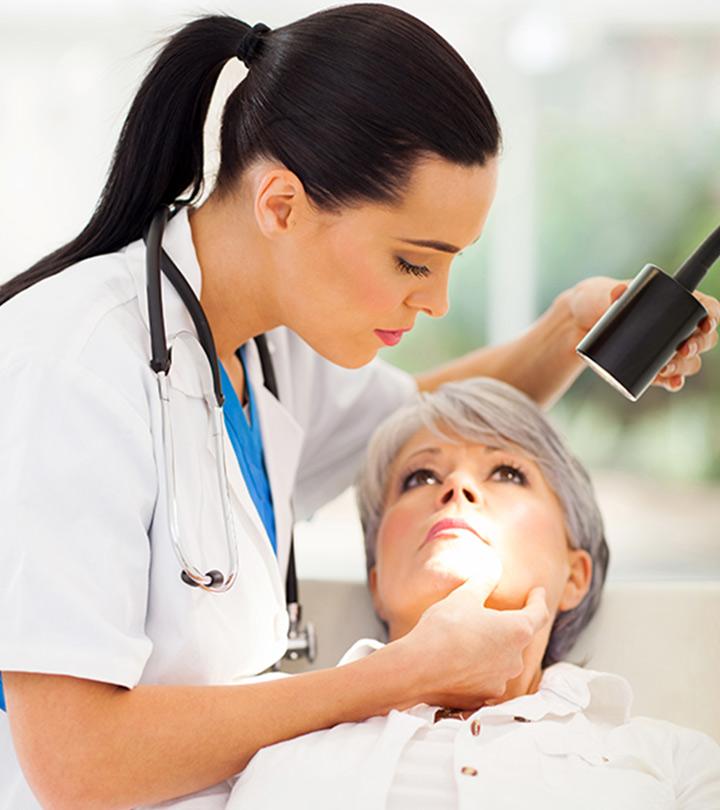Propylene Glycol For Skin: Benefits, Side Effects, & How To Use
Moisturize your skin and enhance its texture by using products containing this ingredient.
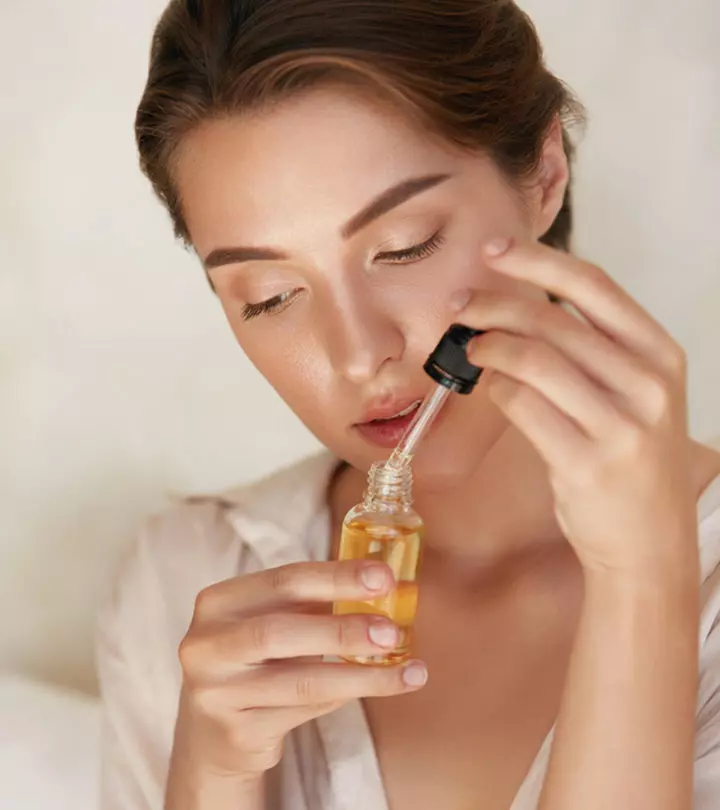
Image: Shutterstock
Propylene glycol is a popular ingredient in most skincare products. As it is one of the best hydrating agents, many prefer propylene glycol for skin dryness and dullness. You can find this ingredient in serums, hair sprays, moisturizers, toothpaste, and perfumes.
This popular ingredient helps the skin retain moisture and improve its texture. However, there are a few concerns regarding propylene glycol in skin care products.
 Know Your Ingredient: Propylene Glycol
Know Your Ingredient: Propylene GlycolWhat Is It?
A synthetic, colorless, odorless, viscous liquid that absorbs water.
What Are Its Benefits?
It may improve skin texture, moisturize skin, treat acne, prevent premature aging, promote the absorption of other skin care products, and protect the skin barrier.
Who Can Use It?
It is best suited for people with dry skin, although it can be safely used by all skin types.
How Often?
Apply it to your skin once or twice a day.
Caution
A patch test is recommended to avoid any irritation.
What Is Propylene Glycol? Is It Safe?
Propylene glycol is an odorless and colorless liquid known for its hydrating properties. It attracts and seals skin moisture. It is an excellent humectanti A hydrating agent that can attract water both from the air and within the skin to keep the outer skin layer moist and hydrated. and is used in many products, including moisturizers, shampoos, conditioners, and serums.
It helps improve skin texture and promotes the absorption of other ingredients. Propylene glycol is also used in other industries as a solvent, an emollienti An agent or substance that hydrates the skin by forming a protective barrier and trapping moisture in the skin. , a humectanti A hydrating agent that can attract water both from the air and within the skin to keep the outer skin layer moist and hydrated. , and a preservative (1).
But is it a good idea to use propylene glycol for skin? Yes, contrary to what many believe, propylene glycol is safe for use unless you are allergic to it. The WHO has set its daily intake limit to 25 mg per kg of body weight (2). It is also approved as a safe additive to food by the FDA and completely safe for human use (3).
 Quick Tip
Quick TipIn the following section, we will see how this ingredient can benefit the skin.
In This Article
Benefits Of Propylene Glycol For Skin
1. Helps Moisturize Skin
Propylene glycol is popular for moisturizing and smoothening the skin (1). Propylene glycol is an odorless and colorless liquid known for its hydrating properties. It is ideally used in products made for dry and combination skin types, and skin that is parched or flaky. The humectanti A hydrating agent that can attract water both from the air and within the skin to keep the outer skin layer moist and hydrated. properties of propylene glycol attract water and seal it onto the outer skin layer.
Propylene glycol also works as an emollienti An agent or substance that hydrates the skin by forming a protective barrier and trapping moisture in the skin. and softens and soothes the skin (4).
2. May Improve Skin Texture
Propylene glycol protects your skin from excess dryness and prevents damage caused due to external oxidative factors. This may improve skin texture too. However, more research is warranted in this regard.
3. May Help Treat Acne
Moisturizers that are usually oily can aggravate acne. Propylene glycol is water-based, light in texture, and non-sticky – and can hence be safe on acne-prone skin. However, the acne-fighting properties of propylene glycol are yet to be studied.
4. May Prevent Premature Aging
There is limited research available here. But anecdotal evidence suggests that the natural moisturizing capabilities of propylene glycol may help reduce the signs of premature aging. Dry skin is more prone to flakiness, wrinkles, and fine lines. Propylene glycol may keep skin moisturized and prevent the signs of premature aging.
5. Promotes Better Absorption Of Other Skin Care Products
Propylene glycol is known to help the active ingredients present in other cosmetic products reach deeper into the skin, thus improving their efficacy and results (5).
6. Safeguards The Skin Barrier
Another lesser-known benefit of propylene glycol is it protects your skin barrier (6). The humectanti A hydrating agent that can attract water both from the air and within the skin to keep the outer skin layer moist and hydrated. properties of this ingredient can help safeguard the skin barrier, especially for people with skin conditions like eczemai An inflammatory skin condition that causes dry skin, itching, redness, and rashes, which also may flare sometimes. and psoriasis.
Since propylene glycol has so many benefits, it is easily one of the most used ingredients in many skin care and cosmetic products. However, it is often confused with ethylene glycol. But the two are completely different compounds. The following section discusses these differences.
Propylene Glycol vs. Ethylene Glycol
Propylene glycol and ethylene glycol are both known to be used as anti-freeze in many industries.
That said, ethylene glycol is severely toxic and may be completely unsafe for skin applications. Propylene glycol, on the other hand, has a very low level of toxicity and is safer for use. It is suitable for more skin types.
 Trivia
TriviaThough propylene glycol is the safer of the two, it still does have some side effects. We discuss the same in the next section.
Side Effects Of Propylene Glycol
- People with eczemai An inflammatory skin condition that causes dry skin, itching, redness, and rashes, which also may flare sometimes. may develop irritation to propylene glycol. They are advised to do a patch test before utilizing products with this ingredient.
- Continuous use of propylene glycol around your eye and nasal region may cause irritation.
After considering all its benefits and side effects, you may go for products containing propylene glycol if it suits your skin type.
A recent survey conducted by a team from Australia’s Skin Health Institute included a total of 6,761 participants to study the side effects of propylene glycol, resulting in skin reaction and allergic contact dermatitis. Out of total participants tested, only 21 subjects or 0.31% had a reaction to propylene glycol and reported allergic contact dermatitis.
In another study, 84 patients were patch-tested with 100% Propylene glycol. While 5 patients of the lot showed an allergic reaction, 7 showed an irritant reaction (7).
The use of propylene glycol has also been weakly linked with cancer. A few scientific studies proposed a relation between propylene glycol and the risk of neurological problems. One study discusses a connection between this compound and brain cell damage (8).
However, it is important to note that these studies are based on correlations and are primarily conducted on animals. Also, the Environmental Protection Agency, Department of Health and Human Services, and International Agency for Research on Cancer have not labeled propylene glycol a carcinogen (9).
Here are the various ways you can use these products.
How To Use Propylene Glycol-Based Products On Your Skin?
Propylene glycol is a common ingredient in many skin and personal care products. You can include this ingredient in your skin care routine in multiple ways. Consider your skin type and skin concern before you go for it.
Propylene glycol is an excellent humectanti A hydrating agent that can attract water both from the air and within the skin to keep the outer skin layer moist and hydrated. and emollienti An agent or substance that hydrates the skin by forming a protective barrier and trapping moisture in the skin. . It is a great addition to moisturizers, like creams and lotions, made for parched and flaky skin. To utilize its moisturizing benefits, you can include a propylene glycol moisturizer in your routine.
Since propylene glycol also improves the absorption of other products, it can be a useful ingredient in cosmetic beauty products like foundations, serums, cleansers, and acne treatments.
For better effects, you can utilize targeted skin care products with propylene glycol.
In the next section, we have listed some of the best propylene glycol products you can use.
Best Products With Propylene Glycol
1. Paula’s Choice Clear Extra Strength Skin Clearing Treatment with 5% Benzoyl Peroxide ($19):
This skin-clearing treatment is perfect for those with recurring acne and stress acne. The propylene glycol in the solution helps in the deeper penetration of benzoyl peroxide and more effective action. This product treats stubborn skin acne without making your skin dry.
2. Peter Thomas Roth Water Drench Hyaluronic Cloud Cream ($52)
This moisturizer is composed of propylene glycol, hyaluronic acid, pentavitin, and ceramides that replenish skin moisture. Its light texture is suitable for every skin type.
3. SkinCeuticals C + AHA ($136)
This highly raved product is known for its quick skin brightening results. The propylene glycol it contains boosts the penetration of the other ingredients in the serum – leading to better effectiveness.
Infographic: Additional Uses Of Propylene Glycol
Propylene glycol is one of the popular ingredients in the skin care industry. You can find this ingredient in several cosmetic products, including serums, moisturizers, toothpastes, hairsprays, and perfumes. It is also used as a flavoring agent and preservative in foods.
Check out the infographic below to learn more about the other uses of propylene glycol. Illustration: StyleCraze Design Team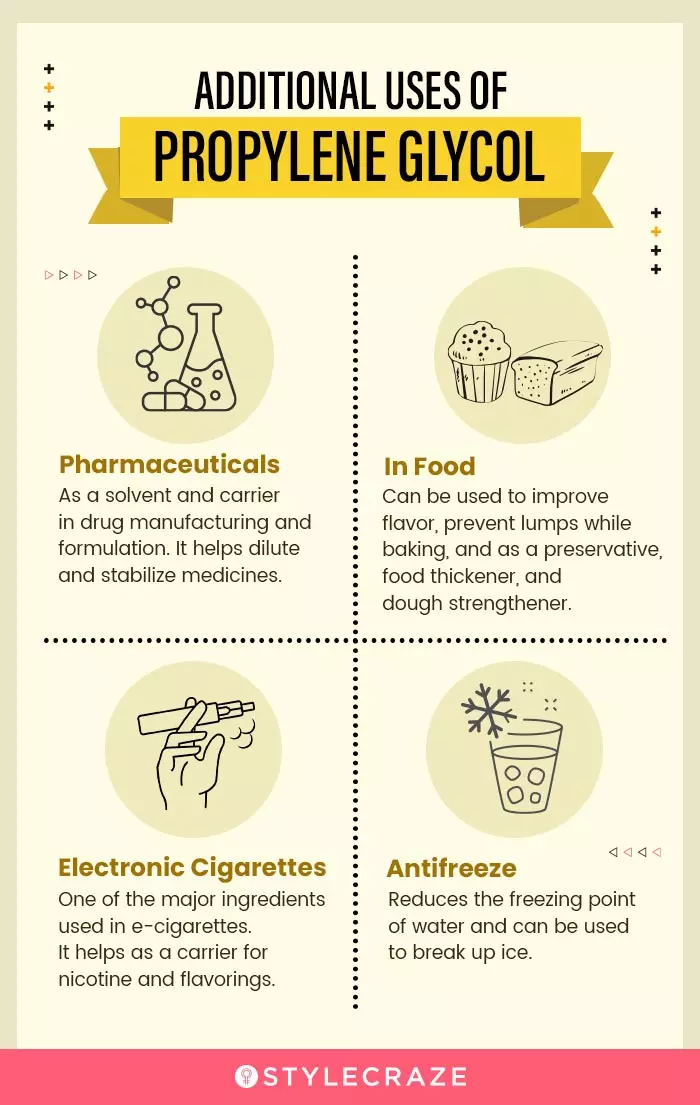
Propylene glycol is present in many skin care products mainly because it helps skin retain its moisture and stay soft and smooth. But some believe using propylene glycol for skin is not safe as it is derived from petrolatum. However, it is safe to use on skin as the cosmetic-grade petrolatum is safer and more refined than commercially used petrolatum. Always perform a patch test before incorporating propylene glycol-containing skin care products to avoid any allergies. Consult a doctor specialized in dermatology immediately if you experience any allergic reactions or irritations.
Frequently Asked Questions
Does propylene glycol clog pores?
No, it does not clog pores. It may instead help unclog pores and improve skin texture.
Is propylene glycol the same as glycolic acid?
No, the two are not the same. Propylene glycol has to break down to form glycolic acid.
Is it okay to use propylene glycol every day?
Yes, you can use propylene glycol every day if you are not allergic to the ingredient.
Key Takeaways
- Propylene glycol is the best hydrating agent and an excellent humectanti A hydrating agent that can attract water both from the air and within the skin to keep the outer skin layer moist and hydrated. that helps improve skin texture and retain moisture.
- This odorless and colorless liquid may help treat acne, prevent premature aging, and protect the skin barrier.
- Most people often confuse propylene glycol with ethylene glycol. Both are entirely different compounds.
- Also, people with eczemai An inflammatory skin condition that causes dry skin, itching, redness, and rashes, which also may flare sometimes. may develop irritation to this compound. So, do a patch test before using products with propylene glycol.
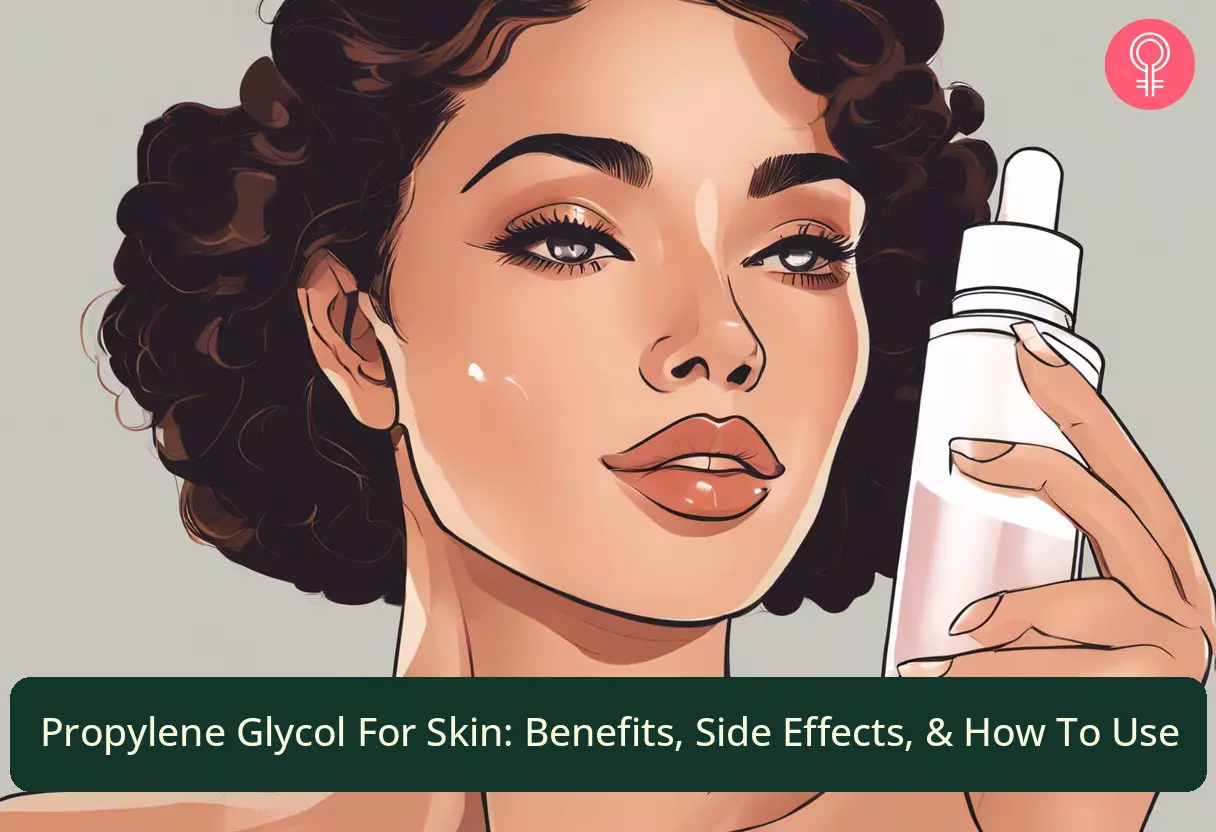
Image: Stable Diffusion/StyleCraze Design Team
Ever wondered about propylene glycol? Dive into this eye-opening video to understand its implications and why you should avoid it. Stay informed and make the right choices!
References
Articles on StyleCraze are backed by verified information from peer-reviewed and academic research papers, reputed organizations, research institutions, and medical associations to ensure accuracy and relevance. Read our editorial policy to learn more.
- Propylene glycol
https://pubchem.ncbi.nlm.nih.gov/compound/Propylene-glycol - Spectroscopic detection of brain propylene glycol in neonates: Effects of different pharmaceutical formulations of phenobarbital
https://www.ncbi.nlm.nih.gov/labs/pmc/articles/PMC6587756/ - CFR – Code of Federal Regulations Title 21
https://www.accessdata.fda.gov/scripts/cdrh/cfdocs/cfcfr/cfrsearch.cfm?fr=184.1666 - Propylene Glycol
https://home.liebertpub.com/publications/dermatitis/672/overview - Effect of finite doses of propylene glycol on the enhancement of in vitro percutaneous permeation of loperamide hydrochlorid
https://www.sciencedirect.com/science/article/abs/pii/S0378517304000286 - Influence of skin penetration enhancers on skin barrier function and skin protease activity
https://www.sciencedirect.com/science/article/abs/pii/S0928098713003631 - Skin irritation caused by propylene glycols
https://pubmed.ncbi.nlm.nih.gov/7085276/ - Propylene Glycol produces excessive apoptosis in the developing mouse brain alone and in combination with Phenobarbital
https://www.ncbi.nlm.nih.gov/pmc/articles/PMC3366500/ - ToxFAQs™ for Propylene Glycol
https://wwwn.cdc.gov/TSP/ToxFAQs/ToxFAQsDetails.aspx?faqid=1121&toxid=240#
Read full bio of Dr. Somodyuti Chandra
Read full bio of Ramona Sinha
Read full bio of Swathi E





